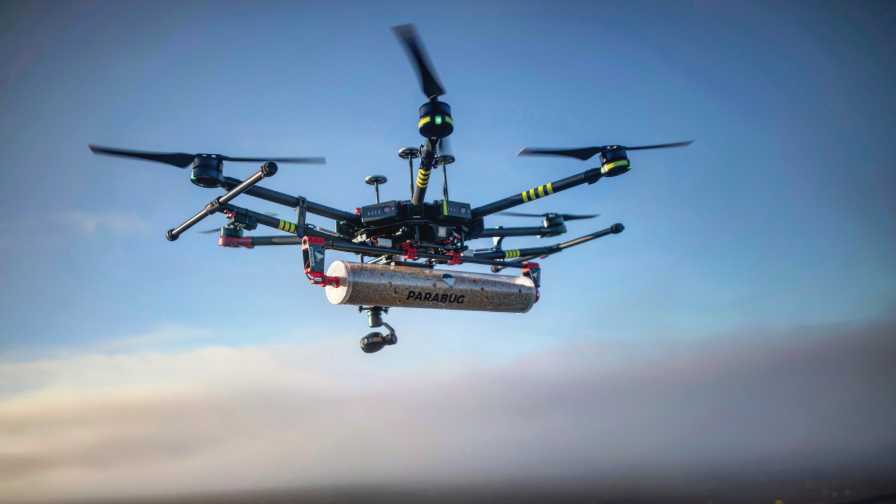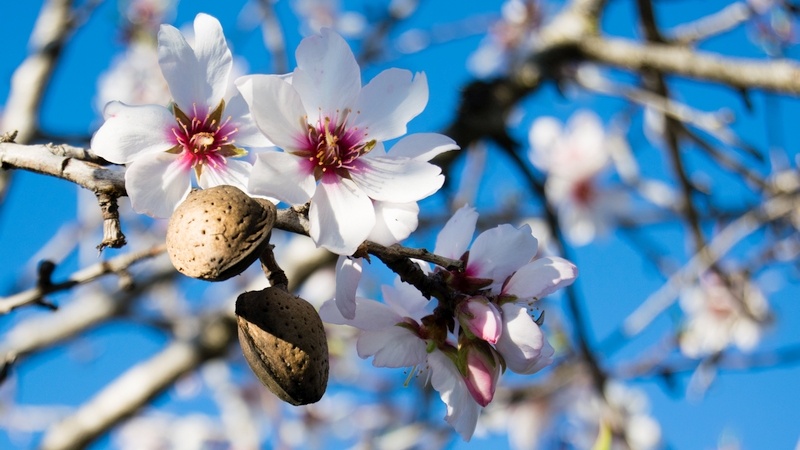Vegetable Grower Uses Biologicals To Turn Table on Diamondback Moth and Aphids
We aren’t organic producers; we are conventional producers. But in the last couple years we’ve been really incorporating some of the things that we’ve learned from organic guys. So the main insecticides we’re using are biological.
For example, we spray Bacilllus thuringiensis (Bt) proteins and use products like diatomaceous earth and other natural insecticides on the crop. It’s all organically labeled, really safe stuff.
This past year we’ve been working with Parabug. They are spreading beneficial insects with drones, and we’ve seen great results.
Parabug offers contracts in Florida where they’ll come to the farm and run the drone and spread the beneficials for you.
We have acres where the only sprays the crops were getting were Bts, diatomaceous earth, and Parabug’s beneficial insects. And we were able to bring crops all the way to harvest without using any of the harsh insecticides.

This Parabug drone can cover the same amount of acreage as a crew of 20 workers — and do it in just a few hours.
Most Problematic Insects
The main problems in our Florida fields are diamondback moths — that’s the big one — cabbage loopers, and aphids. We don’t get too many thrips in Florida, but they can be an issue.
In lettuce we have a lot of leaf miners, as well. So we’re spreading a parasitic wasp to handle it.
Parabug is actually taking live parasitic wasps and dropping them in the fields. Once the fields are inoculated, they’re able to stay out there for weeks and even months at a time if there’s an available food supply.
While we’re using Parabug only in Florida, we are using a lot of the Bts and diatomaceous earth in our Ohio acres. Parabug, who applies the bios, is still expanding. So they’re not available to us in the Midwest.
We’re using a variety of different species to manage our pests.
Most commonly, we are dropping Trichogramma and Diglyphus, but from time to time we will apply Aphidius and/or lacewings as well.
Some of what they’re dropping for us in Florida are parasitic wasps, but some of them are different larvae, and some are eggs of lacewings. Lacewings go after aphids, while other releases control diamondback moths.

One major benefit for using biological products? A zero re-entry interval for workers. They not only keep crews safe, but they prevent lags. Photo by Carol Miller
We’re Embracing Stewardship
This season we’re experimenting with planting different host crops that will attract and hold the beneficials alongside our fields. The idea being, the larger, natural population of predators that we are able to foster in our local area, the more sustainable and effective this practice will be in the future.
We’re still conventional growers, and we do have some of the other chemistries in our back pocket if needed. But if we’re able to bring these crops to harvest without all these products, that’s a huge win for me.
These biological products we’re talking about have zero-day preharvest intervals and zero re-entry intervals for our people. It’s so much safer and convenient for our operators and harvest guys.
The fact we’re able to maintain that program is a huge feather in our cap. It’s safer for our employees and much easier for scheduling harvest.
It’s also healthier for our local eco-system. If you’re applying harsh chemicals back-to-back over multiple weeks, it’s really only going to compound the problem. Because you’re not only killing your pests, but you’re killing all your beneficials as well. By just supplementing our beneficials and using more selective products, we can keep all those beneficials alive while getting rid of the pests with more natural products, we can keep all those beneficials alive while getting rid of the pests.










